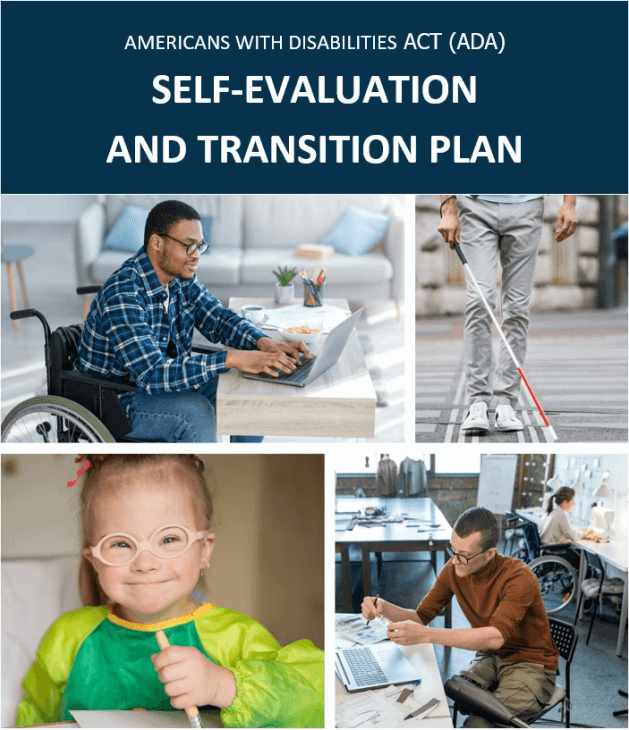This plan includes the review of 27 facilities and one (1) design review of Arts & History’s Erma Hayman House.
It is important to note that these efforts are on-going, and other facilities that are owned by the City of Boise but leased to other organizations, such as Boise Art Museum (BAM) and The Cabin, may be included as future iterations of this plan. Additionally, other accessibility reviews such as of the City of Boise’s website, Greenbelt, City of Boise owned housing and the Ridge to Rivers trail system will be future projects.
This plan also includes a summary of the city’s programs as well as a summary of architectural barriers and proposed solutions for the city’s facilities and parks/outdoor areas. For clarity, programmatic review was completed by city staff where architectural barriers were assessed by a consultant, Benesch (formally Tindale Oliver and Associates). Both programmatic and architectural reviews are designed to help move the city towards full compliance with its obligations under the Title II of the Americans with Disabilities Act (ADA) as well as progressing towards an inclusive and barrier-free organization. As the City of Boise does not generally oversee the public rights-of-way (PROW), such as sidewalks and curb cuts, PROW elements are not included in this report unless they are on city-owned facilities.
Many city-owned facilities that were recently altered or renovated are substantially accessible and meet most architectural requirements. Continued facility alterations, and/or renovations will significantly reduce barriers and realize City of Boise’s commitment to inclusion and equal access. In the meantime, the greatest problems posed by existing barriers can be remedied by establishing policies and procedures to proactively include and accommodate members of the disability community. The city has taken several significant steps in this direction:
- Established an Accessible Parking Committee (APC) that operated from August 2017 to May 2021. The mission of the committee was to improve accessibility and access in Boise, particularly the downtown core. In partnership with the APC, an in-depth analysis was conducted with city staff in 2019 to begin remedying parking barriers.
- In early 2018, the City of Boise hired Ciera Garechana, the Community Accessibility Manager. This position is housed within the Office of Community Engagement, and dedicated to furthering accessibility.
- In 2019, City of Boise hired a consultant, Benesch (formally Tindale Oliver & Associates), to undertake its assessment of architectural barriers of public-facing city facilities.
- City of Boise launched a comprehensive accessibility survey to community members in the fall of 2020 to gauge public opinion and understand the community’s priorities for accessibility.
- Throughout 2021, City of Boise has done multiple community engagements to gather input. Staff and community members with cross disabilities collectively reviewed facilities assessment reports to best prioritize barrier removals for what is most meaningful to people with disabilities.
- In fall of 2021, the city put together a Cross Disability Advisory Taskforce to collaborate with community leaders with cross disabilities to understand how we can move beyond legal requirements to improve the quality of life for people with disabilities living, working, and recreating in Boise.
